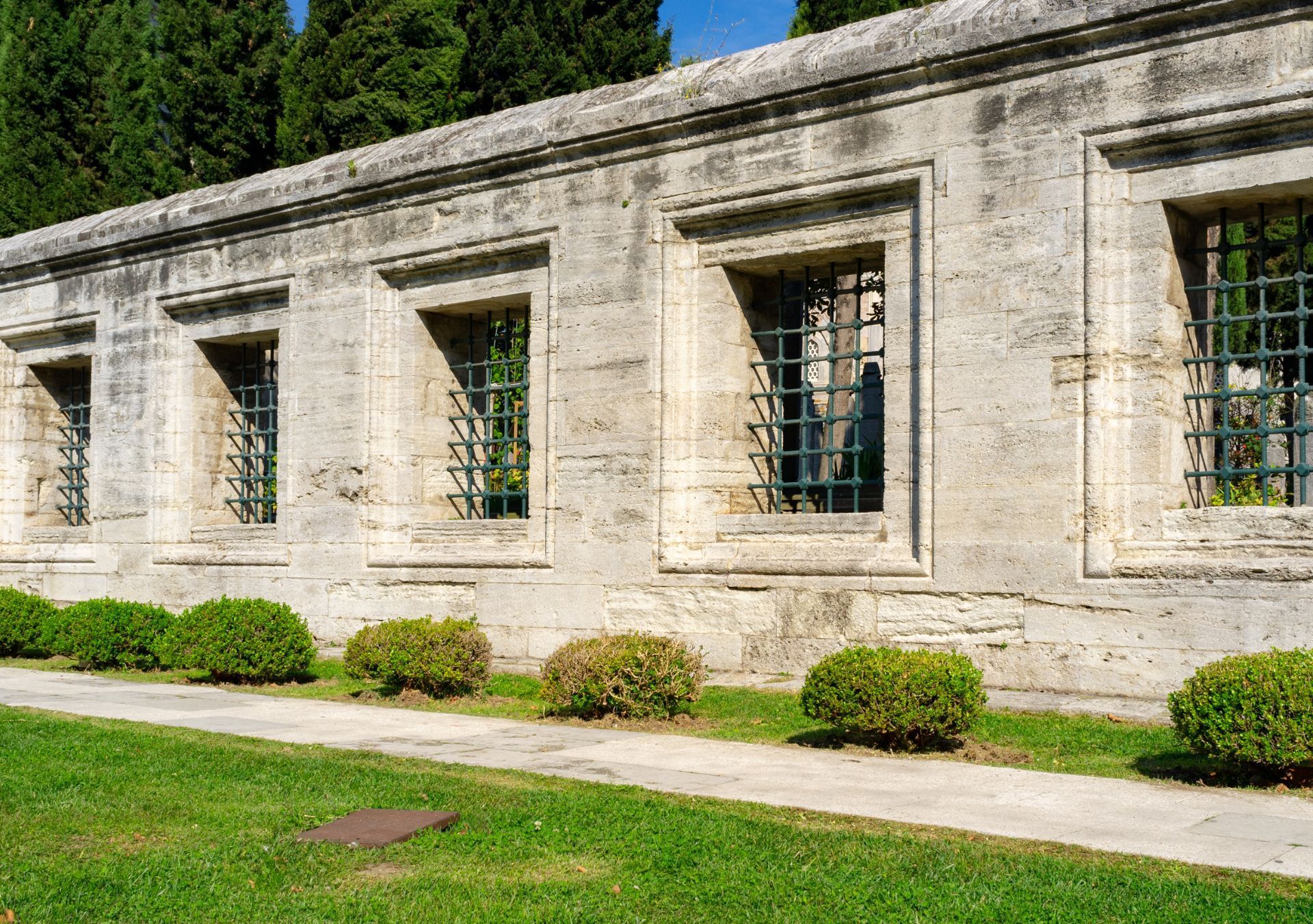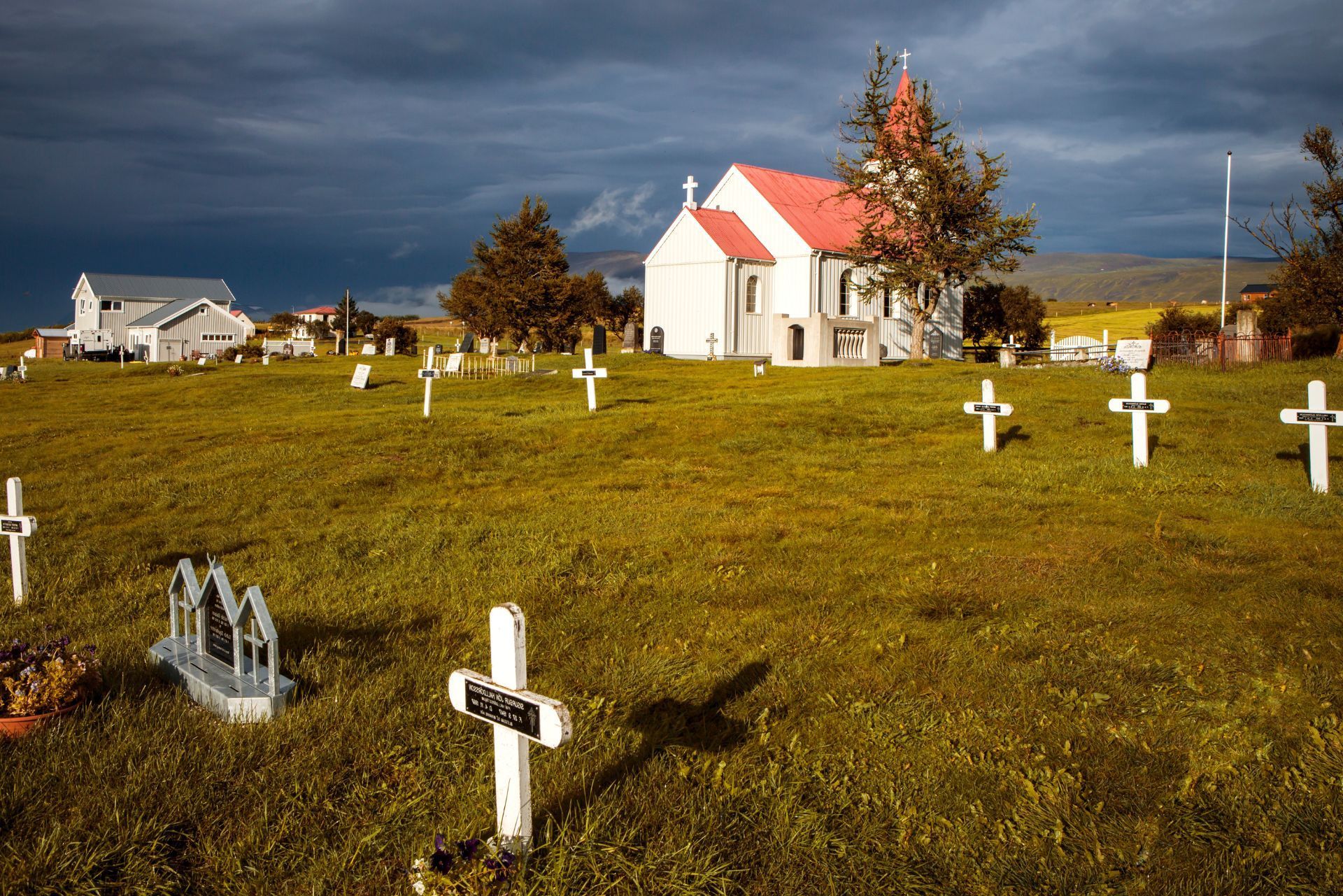
Most Common Business Policies
Index
Understanding the Unique Risks in Cemetery and Funeral Home Operations
Key Types of Cemetery and Funeral Home Insurance Coverage
Legal and Regulatory Considerations in Cemetery and Funeral Home Insurance
Choosing the Right Cemetery and Funeral Home Insurance Policy
Common Challenges and How to Overcome Them
Contact Us
Operating a cemetery or funeral home involves unique risks and responsibilities that require specialized insurance coverage. From protecting against property damage and liability claims to ensuring compliance with regulatory standards, cemetery and funeral home insurance is essential for safeguarding your business and providing peace of mind to your clients.
This comprehensive guide explores everything you need to know about cemetery and funeral home insurance, including the types of coverage available, common risks, legal considerations, and tips for selecting the right policy. Whether you are a funeral director, cemetery owner, or involved in the death care industry, understanding these insurance essentials is crucial for protecting your business and maintaining trust in your community.
Understanding the Unique Risks in Cemetery and Funeral Home Operations
Cemeteries and funeral homes face a variety of risks that differ significantly from other types of businesses. These risks arise from the nature of the services provided, the handling of sensitive materials, and the emotional context surrounding death care.
Liability Risks
One of the primary concerns for cemeteries and funeral homes is liability. This can include slip-and-fall accidents on the property, damage to gravesites or monuments, and professional liability related to the handling of remains or funeral arrangements. For example, a funeral home may face claims if embalming is not performed correctly or if there is an error in cremation services.
Additionally, emotional distress claims are not uncommon in this industry, as families entrust funeral homes with the care of their loved ones. Any perceived negligence can lead to lawsuits, making liability coverage a critical component of insurance policies. The emotional stakes are high, and families often seek accountability when they feel that their expectations have not been met, which can lead to protracted legal battles and significant financial repercussions for the business.
Property and Equipment Risks
Funeral homes and cemeteries often have valuable property and equipment, including hearses, embalming machines, refrigeration units, and landscaping tools. These assets are vulnerable to damage from fire, theft, vandalism, or natural disasters. For instance, a fire in a funeral home could result in significant loss of both property and irreplaceable records.
Moreover, cemeteries require ongoing maintenance of grounds and infrastructure such as mausoleums, chapels, and administrative buildings. Insurance that covers property damage and business interruption can help mitigate financial losses in the event of unexpected incidents. The need for regular upkeep not only preserves the dignity of the site but also protects the business from potential liability claims related to unsafe conditions. Additionally, investing in security measures, such as surveillance systems and alarm systems, can further safeguard these valuable assets against theft and vandalism.
Environmental and Regulatory Risks
Cemeteries must comply with strict environmental regulations regarding burial practices, waste disposal, and land use. Failure to adhere to these regulations can result in fines, legal action, and reputational damage. For example, improper handling of embalming fluids or failure to maintain groundwater safety can lead to environmental contamination.
Insurance policies that include coverage for environmental liability and regulatory fines can provide an extra layer of protection. Understanding these risks is vital for cemetery owners to ensure compliance and avoid costly penalties. Furthermore, staying informed about changes in environmental laws is essential, as regulations can evolve and vary by location. Engaging with local authorities and environmental agencies can help cemetery operators remain proactive in their compliance efforts, fostering a reputation of responsibility and care within the community. This proactive approach not only mitigates risks but also enhances the trust families place in these establishments during their most vulnerable moments.

Key Types of Cemetery and Funeral Home Insurance Coverage
Insurance for cemeteries and funeral homes is typically a combination of several specialized policies tailored to the unique needs of the death care industry. Below are the most common types of coverage to consider.
General Liability Insurance
General liability insurance is fundamental for protecting against third-party claims of bodily injury, property damage, and personal injury. For example, if a visitor trips on uneven ground at a cemetery or a family member slips inside a funeral home, this coverage helps pay for medical expenses and legal fees.
This policy also covers advertising injury, such as defamation or copyright infringement, which can be relevant if the business uses promotional materials or websites. It is essential for funeral homes and cemeteries to maintain a strong public image, as they often rely on community trust and reputation. Therefore, having robust general liability coverage not only protects against financial loss but also reinforces the business's commitment to safety and professionalism.
Professional Liability Insurance (Errors & Omissions)
Professional liability insurance, also known as errors and omissions (E&O) insurance, covers claims arising from mistakes or negligence in the professional services provided. Funeral homes, in particular, benefit from this coverage as it protects against allegations such as mishandling of remains, incorrect documentation, or failure to fulfill contractual obligations.
Given the sensitive nature of funeral services, even minor errors can lead to significant legal claims, making E&O insurance a crucial safeguard. Additionally, this type of insurance can cover legal defense costs, which can be substantial, allowing funeral homes to focus on providing compassionate care to families during their time of loss without the added stress of financial burdens from potential lawsuits.
Property Insurance
Property insurance protects the physical assets of cemeteries and funeral homes, including buildings, equipment, and inventory. Coverage typically includes damage from fire, storms, theft, and vandalism. For cemeteries, this may extend to monuments, headstones, and landscaping features.
Business interruption coverage is often included or available as an add-on, helping to cover lost income and ongoing expenses if the business is temporarily unable to operate due to a covered event. This is particularly important for funeral homes, where the loss of income can be devastating, especially during peak seasons or in the event of a natural disaster. By ensuring that property insurance is comprehensive, funeral homes can safeguard their operations and maintain their ability to serve grieving families without interruption.
Workers’ Compensation Insurance
Employees in cemeteries and funeral homes face occupational hazards such as heavy lifting, exposure to chemicals, and operating machinery. Workers’ compensation insurance provides coverage for medical expenses and lost wages if an employee is injured on the job.
This coverage is typically mandated by law and is essential for protecting both employees and employers from the financial impact of workplace injuries. Furthermore, investing in a strong workers’ compensation policy can enhance employee morale and retention, as workers feel valued and secure in their roles. By prioritizing safety and providing adequate coverage, funeral homes and cemeteries can foster a supportive work environment that ultimately benefits the families they serve.
Commercial Auto Insurance
Funeral homes often use vehicles such as hearses and limousines to transport the deceased and family members. Commercial auto insurance covers these vehicles against accidents, theft, and damage. It also provides liability coverage if the vehicle causes injury or property damage to others.
Given the specialized use of these vehicles, it is important to ensure the policy reflects the specific risks involved in funeral transportation. Additionally, maintaining these vehicles to the highest standards is crucial, as they are often a reflection of the funeral home's professionalism. Regular inspections and maintenance not only help in minimizing risks but also ensure that families receive dignified and respectful service during their time of need.
Environmental Liability Insurance
Environmental liability insurance addresses risks related to pollution and contamination, which are particularly relevant for cemeteries. This coverage can protect against claims arising from groundwater contamination, improper waste disposal, or other environmental hazards.
Since environmental regulations are stringent and violations can be costly, this insurance helps mitigate financial exposure and supports compliance efforts. Moreover, cemeteries that prioritize environmental stewardship can enhance their reputation in the community, attracting families who value sustainability. By investing in environmental liability insurance, cemeteries can not only protect their assets but also demonstrate their commitment to preserving the land for future generations, fostering a sense of trust and respect among the families they serve.
Legal and Regulatory Considerations in Cemetery and Funeral Home Insurance
Operating within the death care industry requires adherence to numerous legal and regulatory standards. Insurance policies must be structured to address these requirements and protect against potential legal challenges.
State and Federal Regulations
Each state regulates cemeteries and funeral homes differently, often through departments of health, consumer affairs, or specialized funeral boards. These regulations cover licensing, operational standards, pricing transparency, and recordkeeping.
For example, the Federal Trade Commission’s Funeral Rule mandates clear disclosure of prices and prohibits deceptive practices. Insurance policies should consider compliance-related risks and potential claims arising from regulatory violations. Additionally, many states have their own specific laws regarding pre-need contracts, which allow individuals to plan and pay for their funeral services in advance. These contracts must be carefully crafted to comply with state regulations, ensuring that funds are managed appropriately and that consumers are protected against potential fraud or mismanagement.
Contractual Obligations and Indemnity Clauses
Funeral homes and cemeteries often enter into contracts with families, suppliers, and service providers. These contracts may include indemnity clauses that shift liability between parties. Understanding these clauses is important when selecting insurance coverage to ensure that contractual liabilities are adequately insured. Furthermore, the nature of these contracts often involves sensitive emotional circumstances, which can complicate negotiations and lead to disputes. It's crucial for funeral homes to have a clear understanding of their obligations and the potential financial implications of these agreements, as well as how their insurance can provide coverage in the event of a breach or dispute.
Claims Handling and Dispute Resolution
Insurance providers for cemeteries and funeral homes typically offer claims handling services that include legal defense and settlement negotiations. Given the sensitive nature of claims in this industry, such as disputes over burial rights or service quality, effective claims management is essential.
Some policies may also offer mediation or arbitration services to resolve disputes without costly litigation. This can be particularly beneficial in the death care industry, where maintaining a compassionate and respectful approach is paramount. Insurers that understand the emotional weight of these situations can provide tailored support, helping funeral homes navigate claims while preserving their reputation and relationships with families. Moreover, having a robust claims process in place can also serve as a marketing advantage, as families often seek providers who demonstrate a commitment to ethical practices and customer care during difficult times.

Choosing the Right Cemetery and Funeral Home Insurance Policy
Selecting the appropriate insurance policy involves careful assessment of your business’s specific risks, assets, and regulatory environment. Here are key steps to guide the decision-making process.
Conduct a Comprehensive Risk Assessment
Begin by identifying all potential risks associated with your cemetery or funeral home operations. This includes property vulnerabilities, liability exposures, employee safety concerns, and environmental risks. Engaging with an insurance professional who understands the death care industry can provide valuable insights. Additionally, consider conducting a SWOT analysis (Strengths, Weaknesses, Opportunities, Threats) to gain a holistic view of your business's position in the market. This analysis can help you pinpoint unique risks that may not be immediately apparent, such as the impact of local regulations or community sentiment towards your services.
Compare Coverage Options and Limits
Not all insurance policies are created equal. Review the scope of coverage, exclusions, deductibles, and policy limits carefully. For example, ensure that professional liability coverage is sufficient to cover potential claims related to embalming or cremation errors. It may also be beneficial to look into additional coverages such as business interruption insurance, which can safeguard your operations during unforeseen events like natural disasters or pandemics. Furthermore, consider bundling policies through a package plan to potentially reduce costs and simplify management. This can also streamline your administrative processes, making it easier to keep track of renewals and claims.
Evaluate the Insurance Provider’s Reputation and Support
Choose an insurer with experience in the cemetery and funeral home sector, a strong financial rating, and a reputation for responsive claims handling. Reading reviews and seeking recommendations from industry associations can help identify reliable providers. Additionally, inquire about the insurer's customer service capabilities, such as dedicated claims representatives or 24/7 support. A provider that offers educational resources or risk management consultations can also be a valuable partner in helping you navigate the complexities of the industry.
Review Policy Annually and Update as Needed
The death care industry can evolve due to changes in regulations, technology, and customer expectations. Regularly reviewing your insurance coverage ensures it remains adequate and aligned with your business needs. For example, if you add new services like green burials or cremation gardens, update your policy accordingly. It’s also wise to stay informed about emerging trends in the industry, such as digital memorialization or virtual funeral services, as these innovations may introduce new risks that need to be addressed in your coverage. Engaging in annual discussions with your insurance agent can help you anticipate changes and adapt your policy proactively, ensuring that your business is always protected against unforeseen challenges.
Common Challenges and How to Overcome Them
Despite the importance of insurance, many cemeteries and funeral homes face challenges in obtaining appropriate coverage. Understanding these challenges can help in finding effective solutions.
High Premium Costs
Insurance premiums for cemeteries and funeral homes can be higher than average due to the specialized risks involved. To manage costs, consider implementing risk mitigation strategies such as enhanced security, employee training, and regular maintenance to reduce the likelihood of claims.
Coverage Gaps and Exclusions
Some policies may exclude certain risks or impose strict conditions that limit coverage. It is crucial to read policy documents thoroughly and ask questions about any unclear terms. Working with an insurance broker familiar with the industry can help identify and close coverage gaps.
Regulatory Complexity
Keeping up with changing regulations can be daunting. Partnering with legal advisors and industry associations can provide guidance. Additionally, some insurers offer risk management resources and compliance assistance as part of their services.
The Future of Cemetery and Funeral Home Insurance
The death care industry is evolving with new trends such as eco-friendly burials, digital memorial services, and increased consumer demand for transparency and customization. These changes will influence insurance needs and offerings.
Insurers are beginning to develop products that address emerging risks, including cyber liability for digital records and reputational risk management. Staying informed about industry trends and maintaining open communication with your insurer will help ensure your coverage remains relevant and comprehensive.
Conclusion
Cemetery and funeral home insurance is a vital component of managing risk in the death care industry. By understanding the unique exposures, selecting appropriate coverage, and staying compliant with legal requirements, business owners can protect their assets, employees, and clients.
Engaging with knowledgeable insurance professionals and regularly reviewing policies will help ensure that your cemetery or funeral home remains resilient in the face of challenges, allowing you to focus on providing compassionate and professional services to your community.
